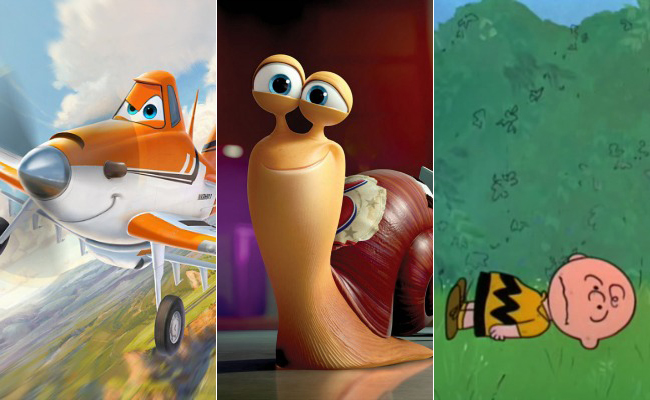 Luke Epplin at theatlantic.com argues, in "You Can Do Anything: Must Every Kids' Movie Reinforce the Cult of Self-Esteem?" —
Luke Epplin at theatlantic.com argues, in "You Can Do Anything: Must Every Kids' Movie Reinforce the Cult of Self-Esteem?" —
For all the chatter about the formulaic sameness of Hollywood movies, no genre in recent years has been more thematically rigid than the computer-animated children's movie. These films have been infected with what might be called the magic-feather syndrome. As with the titular character in Walt Disney's 1943 animated feature Dumbo, these movies revolve around anthropomorphized outcasts who must overcome the restrictions of their societies or even species to realize their impossible dreams. Almost uniformly, the protagonists' primary liability, such as Dumbo's giant ears, eventually turns into their greatest strength.
But first the characters must relinquish the crutch of the magic feather--or, more generally, surmount their biggest fears--and believe that their greatness comes from within.
Epplin cites a profusion of current and recent offerings — Planes, Turbo, Kung Fu Panda, Wreck-It Ralph, Ratatouille — that follow the same formula. He takes the perspective that this message is naive: it's a patent falsehood that grandiose hopes can be achieved with minimal failure after a 90-minute quest.
Epplin suggests that Charlie Brown — whom Charles Shultz gives a home-run to after forty-three years — might serve as a useful counter-example.
I'm less concerned about the specific moral of contemporary kids' movies — though I agree that the anti-cult-of-self-esteem partisans have a point — than I am about the monotony of morals.
One of the things I'd love to see in our school — in the early grades, particularly — is a plurality of messages in the stories kids read. What glorious grist for their mental mills Aesop — even at his most brutally pessimistic — can be!
Any recommendations for heterodox children's stories?